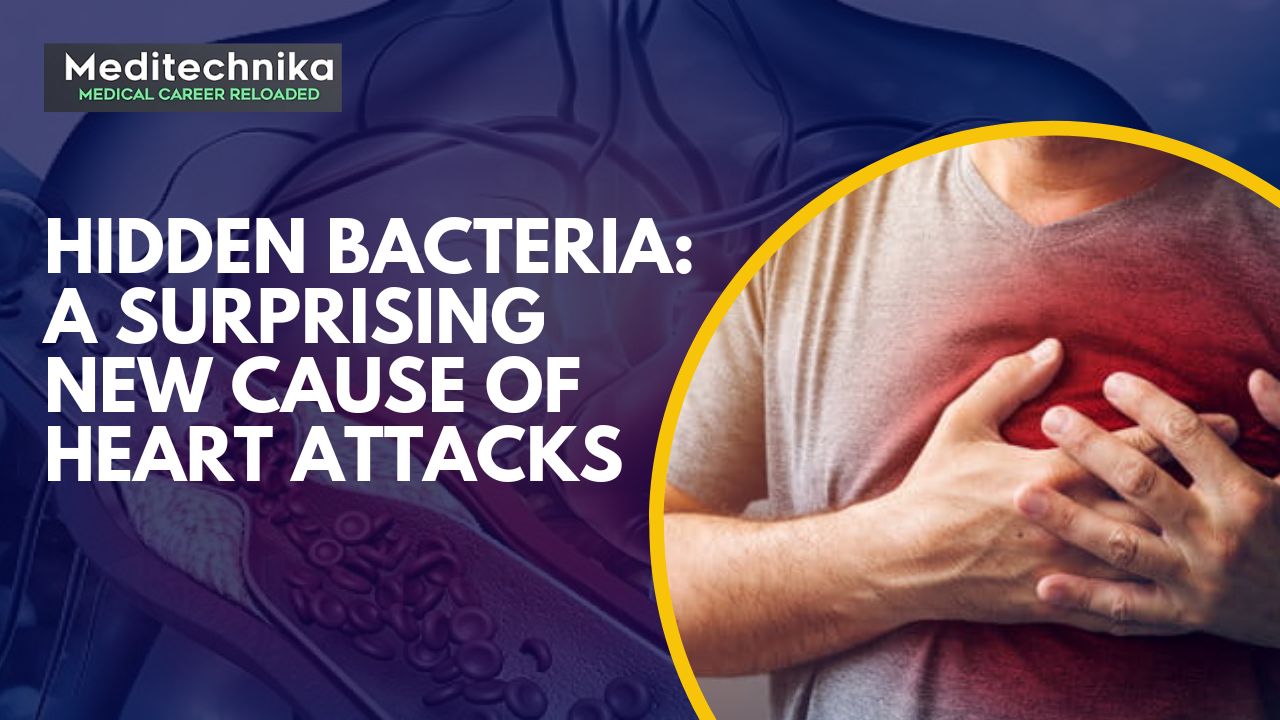Cause of Heart Attack: Hidden Bacteria in Your Arteries Could Be the Silent Killer
For ages, heart disease has been viewed through a familiar lens. Cholesterol, clogged arteries, and high blood pressure have long been blamed as the primary cause of heart attack. But a new study from researchers in Finland and the UK has uncovered a surprising culprit that could rewrite what we know about cardiovascular disease: hidden bacterial infections!
The groundbreaking research, published in the Journal of the American Heart Association (2025), suggests that bacterial biofilms. Biofilms are structured communities of bacteria that adhere to surfaces, forming a slimy, glue-like coating composed of sugars and proteins. Think of them as microscopic cities: dense, layered, and incredibly resilient. The plaque on your teeth, for instance, is a biofilm. Biofilms may quietly dwell inside arterial plaques for years or even decades. These bacterial colonies can lie dormant, shielded from both antibiotics and the body’s immune system, until something suddenly wakes them up.
“It could be a viral infection, it could be stress, anything that triggers inflammation,” explained the study’s lead author, Dr. Mikko Järvinen of the University of Helsinki. “Once these bacteria become active, they release inflammatory molecules that can weaken the plaque wall, leading to rupture – the main cause of heart attacks.”
Usually, when an arterial plaque ruptures, the body’s natural response is to form a blood clot to heal the damage. But in the heart, this can block blood flow entirely, leading to a potentially fatal cardiac event.
Cause of Heart Attack – Bacteria Hiding In Plain Sight
The research team made an unexpected discovery when examining arterial tissue from both heart surgery patients and individuals who had died suddenly from cardiac arrest. Genetic sequencing revealed traces of bacterial DNA, particularly from oral species such as Viridans streptococci, bacteria commonly found in the mouth.
The researchers believe that these microbes can travel from the mouth into the bloodstream through gum infections or dental procedures. Once they reach the arteries, they settle within fatty deposits and form biofilms that allow them to evade the immune system for years.
Extending that, the scientists were able to detect bacterial fragments actively breaking free from these biofilms during heart attacks. “We caught the immune system reacting in real time,” said co-author Dr. Sara Holden from the University of Bristol. “The inflammatory response was explosive, a chain reaction that could easily destabilize the plaque”, she adds.
A New Way of Thinking About Heart Disease
This discovery could mark a new framework in how doctors understand and treat heart disease. If infections do play a direct role in plaque rupture, then antibiotics, vaccines, or targeted anti-inflammatory therapies could become part of future cardiovascular care.
“This doesn’t mean cholesterol and blood pressure aren’t important,” Dr. Järvinen cautioned. “But we may have been missing another piece of the puzzle, one that’s been right under our noses, literally.”
The findings also emphasize the importance of oral health as part of overall heart care. Regular dental hygiene might play a bigger role in preventing heart attacks than previously thought. More research is needed to confirm the exact mechanisms and to test potential treatments. One thing is becoming clear: heart disease might not just be a matter of what’s in the arteries, but also what’s living in them.
